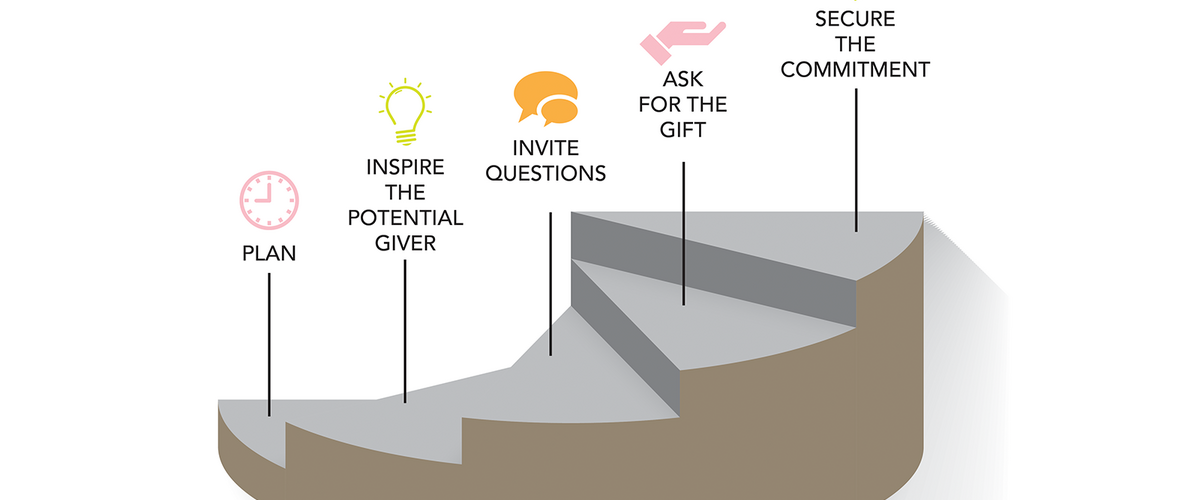Gifted
The five steps to success

In our new book, Gifted Fundraising, we take a close look at the process of approaching others to support our cause. Here's a summary of five steps to remind us that there’s really only one way to achieve the results we’re hoping for – be bold, bite the bullet and ask.
Step 1 | Plan
We know that asking other people for money can be one of the most difficult challenges for any volunteer leader. Getting off to a confident start, involves careful planning and the right kind of support.
Step 2 | inspire
The majority of givers will be inspired by the story they hear and the passion that volunteer leaders or team members have for the cause. Showing enthusiasm for the charity, explaining the project’s tangible benefits and emphasising the impact of the campaign, are all key to creating a positive platform from which to ask.
Step 3 | Invite questions
Potential givers who ask lots of questions are usually revealing an interest in the project and an eagerness to understand more; whether this is to identify the positive benefits to the wider community or to decide if a charity has a sound financial status.
Step 4 | Ask for the gift
The ideal way to start this conversation is for the asker to talk about their own commitment to the campaign. They need to explain why they felt inspired to give and, if they feel comfortable, be ready to declare the size of their gift. If they feel unsure about revealing their own gift verbally, they can always refer to the appropriate level on the scale of giving or highlight the dedicated gifts table, which lists various recognition opportunities.
Step 5 | Secure the commitment
The final, and very important step, is to clarify the prospective giver’s intentions. If they decide to make a gift, the gift card needs to be completed with them. Some prospects will understandably want to consult with spouses, business partners or financial advisors before making their gift. If this is the case, offering a time to come back and follow-up at the earliest, convenient opportunity is really important.
